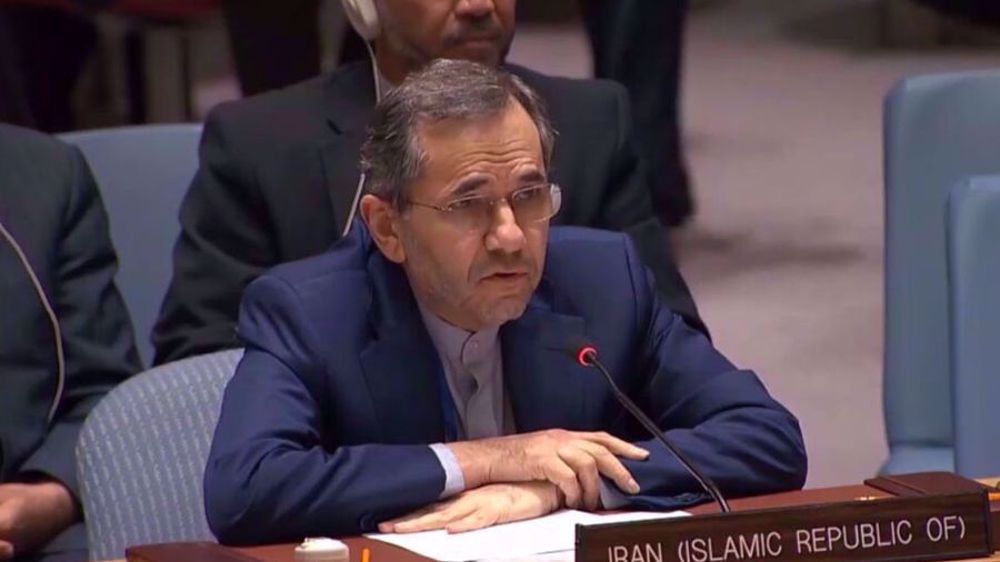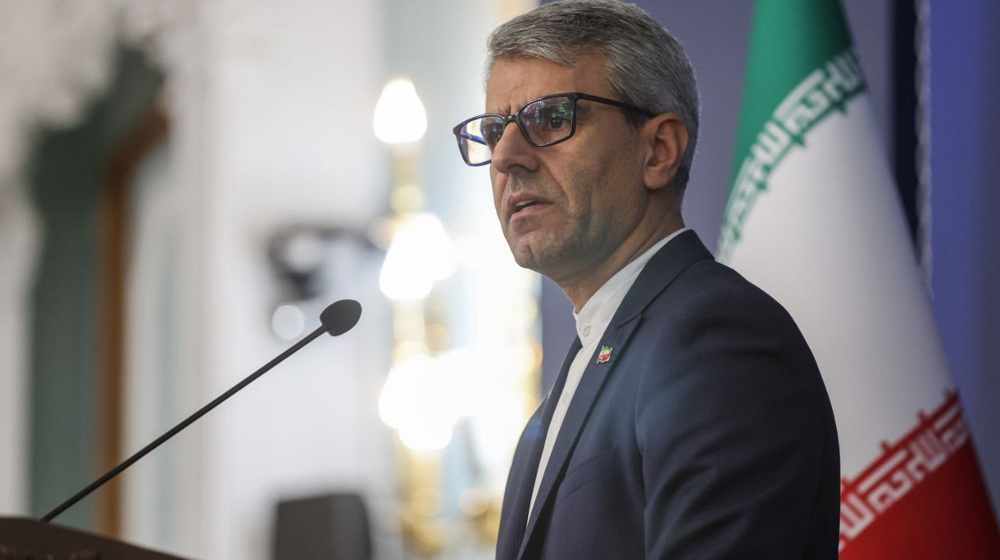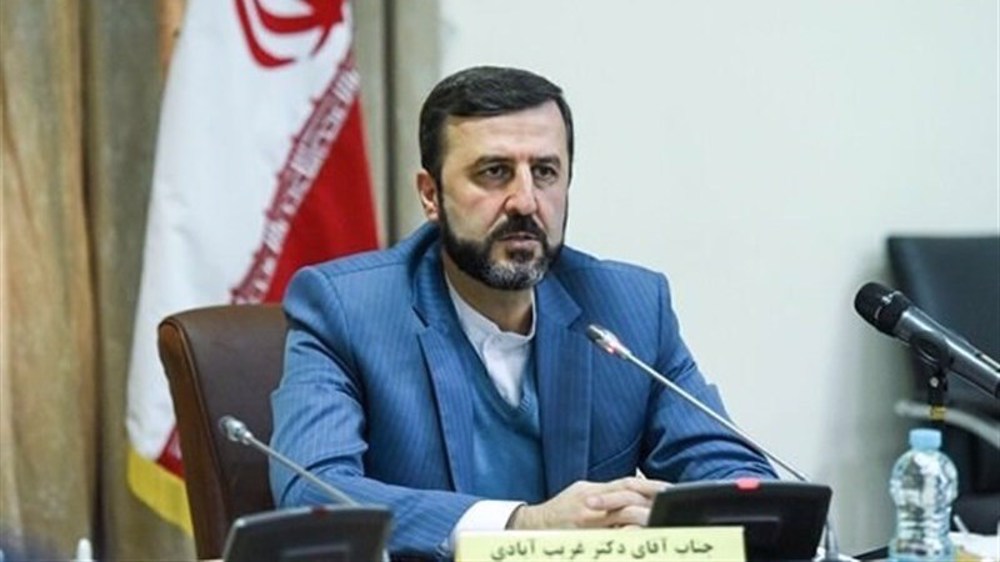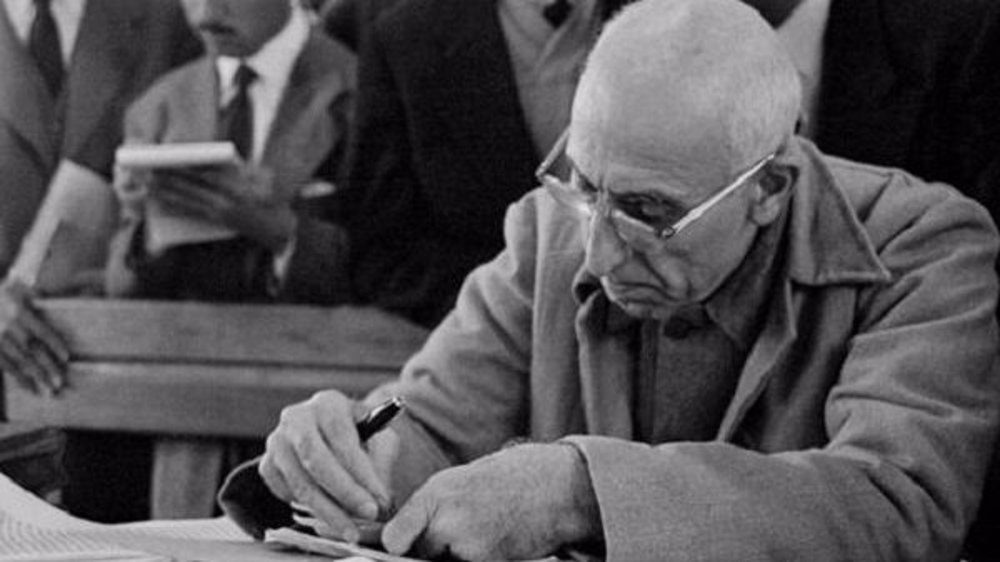US long history of conspiring against Iran won’t end with Biden: Analyst
The United States has a long history of conspiring against Iran and the schemes will not end with the administration of US President Joe Biden, who has claimed to seek diplomacy with Tehran, says political commentator Mohammad Marandi.
Biden on Tuesday extended the so-called “national emergency” against Iran for another year. “Our relations with Iran have not yet been normalized,” he said after signing an executive order extending the National Emergency Act.
The executive order was first issued by former President Jimmy Carter on November 4, 1979, months after the victory of the Islamic Revolution that toppled the US-backed Pahlavi regime in Iran. The decree has been extended for 42 years by successive Republican and Democratic presidents.
Marandi, a professor at the University of Tehran, said the animosity began long before that; in 1953, when the United States orchestrated a coup d'état to overthrow the elected government of Iran in favor of strengthening the dictatorial rule of the Shah.
“The whole standoff between the United States and Iran began after the United States overthrew the national government in Iran and installed the Shah and created SAVAK, the ruthless intelligence organization that the Shah used to suppress the Iranian people,” he said in an interview with Press TV on Wednesday.
“The United States supported the Shah when he was gunning people down during the Islamic Revolution,” he said of the continued US support for the brutal Pahlavi regime in the years following the 1953 coup.
Marandi said that after the Islamic Revolution, the US embassy in Tehran turned into “the center for conspiring against the new government” and efforts to “reverse the gains of the Iranian people.”
At the time, US embassy staff, he explained, were working with various militias, separatists, and terrorist groups to overthrow the nascent Islamic Republic.
“The irony, of course, is that Iran was sanctioned because Iran was revolting against a regime that was not only corrupt but was also enforcing the US subjugation of the Iranian people,” the professor noted.
Commenting on the new executive order by President Biden, Marandi said, “It reflects the state of affairs between Iran and the United States from a historical perspective.”
He said there is “no real difference” between Biden and his predecessor, Donald Trump, who initiated the so-called maximum pressure campaign against Iran and reinstated the sanctions after withdrawing from the 2015 multilateral nuclear agreement, officially called the Joint Comprehensive Plan of Action (JCPOA).
“Biden and Trump both are using sanctions,” he said. “They are trying to punish women and children; they are trying to kill people through sanctions, to gain leverage, to gain concessions.”
“They are as ruthless as any despot that exists in the world we live in today,” he said.
Six rounds of talks have already been held to revive the nuclear deal in Vienna. Tehran is demanding guarantees that sanctions will be removed and that the US will not violate its commitments again. So far, the Biden administration has failed to take any concrete step to show it is sincere in its declared desire to reverse Trump’s harsh Iran policy.
Marandi pointed out that, in effect, the current pressure campaign was enforced by former President Carter, who first signed the National Emergency Act in 1979 after Iranian students took over the American embassy in Tehran.
The US and the Islamic Republic have had no diplomatic relations since then.
VIDEO | Press TV's news headlines
VIDEO | Against erasure: Palestinians say survival in Gaza affirms their right to land
BBC bars use of ‘kidnapping’ to describe Maduro’s kidnapping
VIDEO | International cartoon, poster contest 'Online Terror' unveiled in Tehran
VIDEO | Venezuela installs interim president after US kidnapping of Maduro
Iran FM urges world, UN to voice decisive opposition to attack on Venezuela
VIDEO | Moscow vows revenge
Sanctions slow Iran’s 5G expansion despite growth in network rollout












 This makes it easy to access the Press TV website
This makes it easy to access the Press TV website